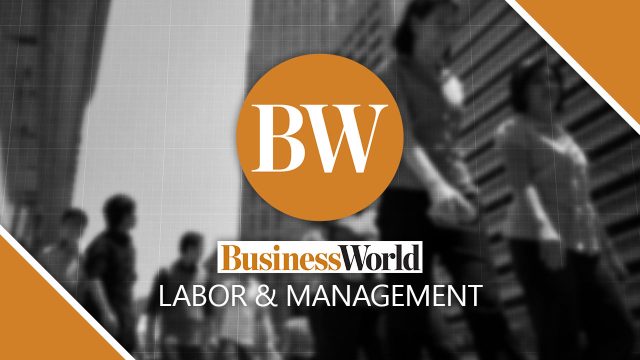SECURITY BANK Corp. (Security Bank) saw its net income increase by 13.58% in the third quarter amid higher revenues.
The bank’s net earnings stood at P3.01 billion last quarter, rising from P2.65 billion in the same period last year, its financial statement disclosed to the stock exchange on Thursday showed.
This brought its nine-month net profit to P8.45 billion, up by 11.62% from P7.57 billion a year ago.
Security Bank’s nine-month income translated to a return on average assets of 1.19%, down from 2.22% at end-2023, while return on average equity went up to 8.07% from 7.81%.
“We are pleased with our third quarter results. The combination of our client engagement, significant investments in our team and our technology has accelerated the bank’s growth,” Security Bank President and Chief Executive Officer Sanjiv Vohra said.
The bank’s net interest income rose by 19.38% to P10.72 billion in the third quarter from P8.98 billion in the same period last year.
Interest income grew by 27.8% to P16.14 billion driven by higher interest earnings from loans, while interest expense climbed by 48.53% to P3.65 billion.
This resulted in a net interest margin (NIM) of 4.9%.
“Total non-interest income in the third quarter was P3.6 billion, up 129% year on year… Third-quarter non-interest income was driven by securities trading gains of P889 million, and service charges, fees and commissions of P1.8 billion, which grew 20% year on year,” the lender said.
Security Bank’s total operating income climbed by 35.84% to P14.36 billion in the third quarter.
Meanwhile, its operating expenses increased by 36.41% to P10.33 billion from P7.52 billion.
The bank’s cost-to-income ratio was at 58.81%, improving from 60.7% a year prior.
Security Bank’s total loans expanded by 15.68% to P622.75 billion at end-September from P538.33 billion at end-2023.
“Retail and MSME (micro, small, and medium enterprises) loans sustained their growth, up 38% year on year,” the bank said. “The growth in retail and MSME loans was driven by home loans which grew 21%, credit cards which rose 70%, auto loans which grew 51%, and MSME loans which increased 58%.”
Retail and MSME loans made up 32% of the bank’s total loan book.
Meanwhile, wholesale loans went up by 19%.
The bank’s net nonperforming loan (NPL) ratio was at 1.4% as of September, while NPL cover was at 79.49%.
On the funding side, total deposits rose by 18.69% to P719.91 billion at end-September from P606.53 billion at end-2023. Current account, savings account (CASA) deposits went up by 11% year on year, making up 53% of the total.
Its net loan-to-deposit ratio was at 86.5%.
Security Bank’s total assets stood at P1.03 trillion at end-September, up by 17.93% from P871.51 billion at end-2023. Total equity was at P143.27 billion.
Security Bank’s common equity Tier 1 ratio was at 13.3%, while total capital adequacy ratio was at 14.2%.
Its liquidity coverage ratio was 186%, while its net stable funding ratio was 135%.
Security Bank shares went up by 90 centavos or 1.14% to close at P80 apiece on Thursday.
MARGINS TO IMPROVE
Meanwhile, the bank expects improved interest margins next year as rates come down.
“As our loan book expands, interest income will expand. From a margin standpoint, it depends. Interest rates have been dropping [and are] expected to drop next year. My loan margins will improve if I don’t drop the same way as the cost. But my deposit margins will also be impacted because as interest rates go down, your deposit income will also correspondingly reduce. My loan NIMs will improve as interest rates drop,” Security Bank Senior Vice-President and Micro and Medium Head John David G. Yap told reporters on Thursday.
Loans under the bank’s business banking segment made up less than 3% of the bank’s total portfolio as of September, he said, even as MSME loans grew by 58% year on year.
Security Bank expects robust demand for MSME loans from MSMEs next year as the lender plans to introduce new products and digital innovations for the sector.
“From a market standpoint, GDP (gross domestic product) forecast next year from our economists was around 6%, so we believe as the economy continues to expand, there will be a need for financing,” Mr. Yap said.
“Given that we are still relatively small in the market, there’s an opportunity to grow. I believe by combining this value proposition, we’ll be able to grow our existing base as well as get other customers into Security Bank because of the new features that will attract them,” he added.
Security Bank will launch a mobile app for its Business Banking Segment next year, Mr. Yap said.
“The goal of the SME Business app is to make the SME’s life much simpler. It could be little things, like simplifying service requests, or giving them the right information, or just getting an app that’s secure and reliable, but that’s how we want to start off. The structure of that app allows us to innovate and add new features very quickly,” he added.
Security Bank has also launched Business Elite, a privilege program for MSMEs with exclusive offers, waived fees, preferential rates, dedicated virtual relationship managers and additional support. — Aaron Michael C. Sy












